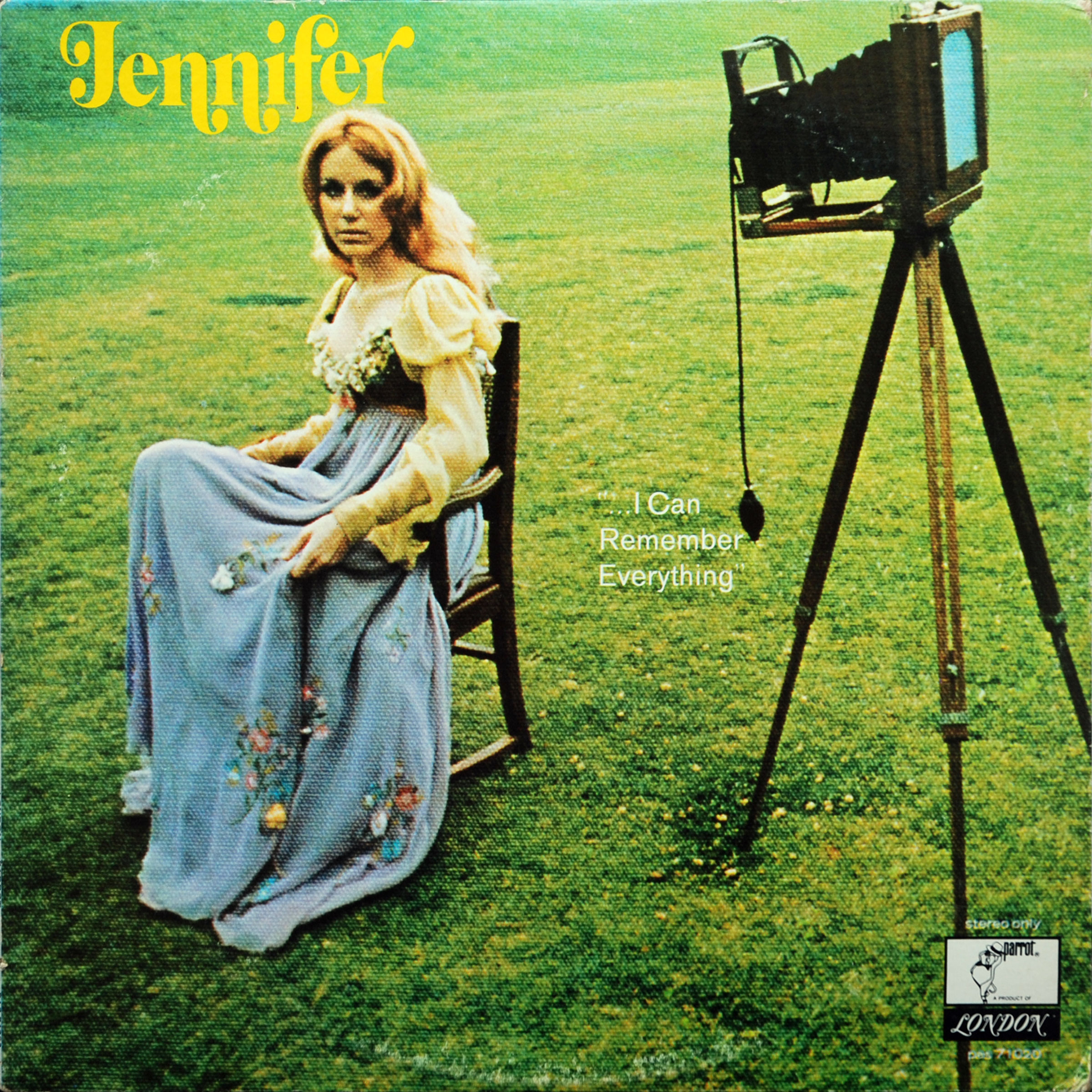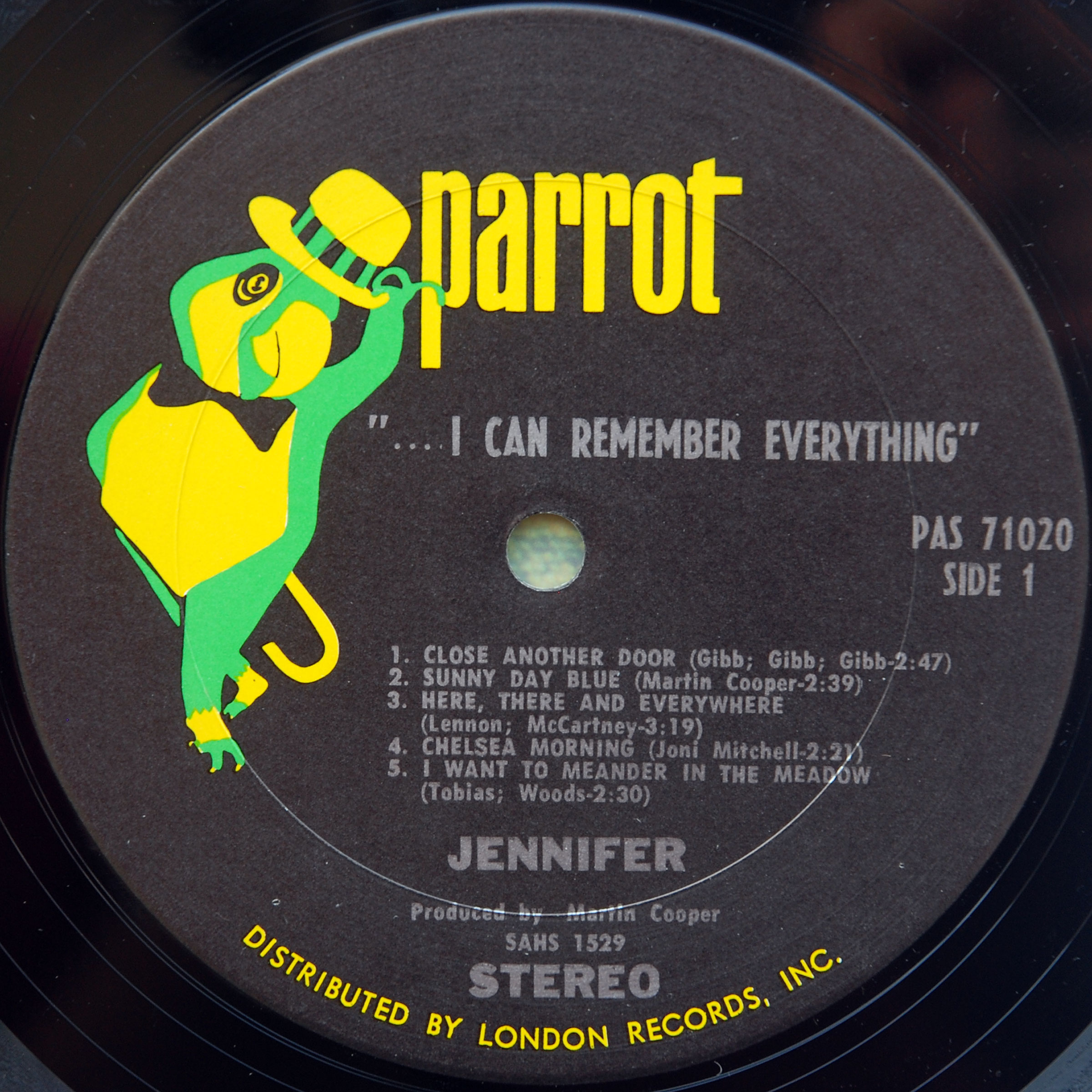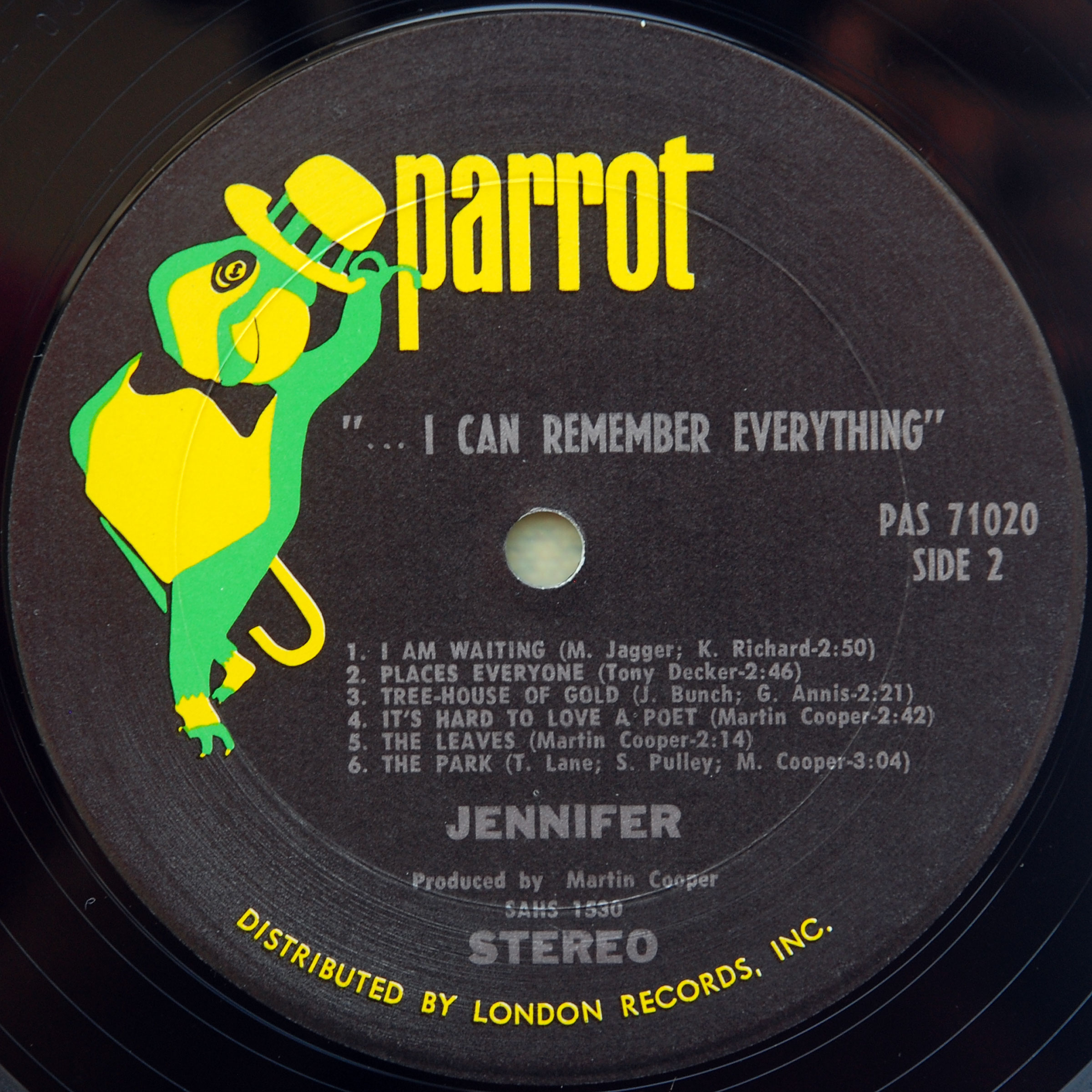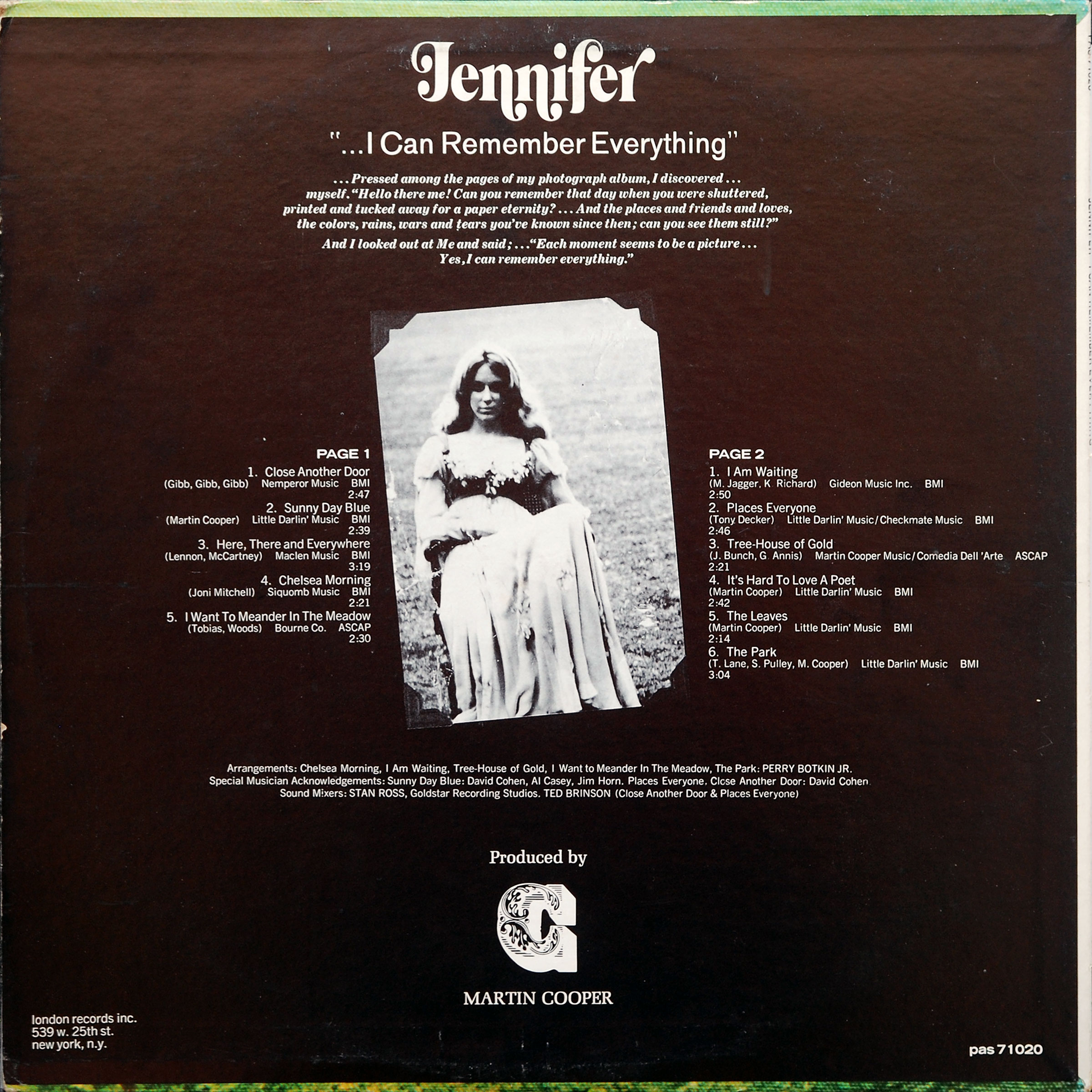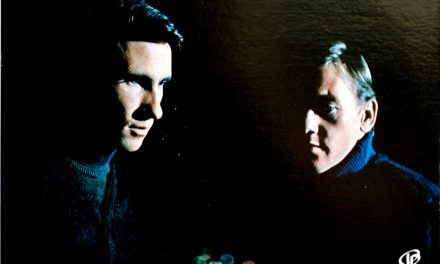Jennifer Warnes, 1968
Like most people, I got my first taste of Jennifer Warnes in 1976 when an easy country-rocker, “Right Time Of The Night”, was everywhere on Top 40 radio. The song peaked at #6 in January of ’77 and for most folks, it was the first they’d heard of Warnes — but it wasn’t because she was a newcomer. In fact, Jennifer Warnes had been recording since the late ’60s.
A Southern California native, Warnes was into the folk music scene and made friends in the LA area with a lot of musicians who would play a part in her career later. One of these was Rick Cunha, guitarist for Hearts & Flowers, who had made two highly-regarded albums for Capitol Records.
As Warnes was gigging around Los Angeles, she shared a bill or two with comedian Pat Paulsen, who introduced her to his friends Tommy and Dick Smothers. They liked what they heard and signed her up to appear on The Smothers Brothers Comedy Hour. She called herself “Jennifer Warren”, and, beginning a career built on heartfelt interpretations of others’ songs, started gaining some fans among viewers.
Enter Rick Cunha, who introduced Jennifer to the folks at Parrot Records, a subsidiary of London. Parrot was a kind of catch-all label for London. If they didn’t know what to do with you, they put you on Parrot. Their roster was primarily British performers of different genres; Van Morrison’s Them, The Zombies and Savoy Brown led the rock contingent while Tom Jones and Engelbert Humperdinck cashed in on the over-40 lounge set. So Parrot was the perfect place for an LA folk-rocker with avante-garde tendencies.
Parrot decided that Warnes’ honeyed, folky voice, coupled with her California flower-girl looks, would be perfect for the kind of soft, slightly psychedelic covers that had served Marianne Faithful so well a couple years prior. They teamed her up with Marty Cooper, a West-Coast stalwart known best for producing folk group The Shacklefords.
“Jennifer Warren” sings for Dick & Tommy, 1967
Her first album, released under the name Jennifer, debuted in mid-1968. Again foretelling her future as an interpretive singer, the album covered Joni Mitchell’s “Chelsea Morning” (released as a single), The Bee Gees’ song “Close Another Door”, and a standout cover of “I Am Waiting”, the Mick Jagger / Keith Richards song from the Stones’ “Aftermath” album.
Already a folk-tinged, mysterious song, Warnes’ precise, soft voice and detached delivery made the composition feel absolutely otherworldly; Billboard Magazine thought it had potential and gave it a thumbs-up, but the single (along with two others from the album) went nowhere. Cooper filled the album with spacey, soft-psychedelic production treatments (as well as with half-a-dozen of his own compositions).
This album is an interesting artifact, documenting an artist who would eventually become revered for her interpretations of others’ songs and her avant-garde sensibilities. As many times as I have listened to it, I never get tired of hearing Warnes intone “I am waiting for someone to come out of somewhere…” She’s a mystical, mysterious prophetess, wrapped up in a span of 2:50.
Another album for Parrot would come in 1969. It too was overlooked, but she kept making compelling records by collaborating with interesting, talented people: her hard-to-find third album for Reprise, in 1972, was produced by The Velvet Underground’s John Cale, and she became a lifelong friend of Leonard Cohen, eventually recording an album of Cohen’s songs (“Famous Blue Raincoat”) that’s widely regarded as a modern interpretive classic.
If you happen to come across a copy of “I Can Remember Everything”, snag it fast and run to give the man your money. It’s worth having if only to hear the beginnings of a remarkable career, but regardless of that, Warnes’ golden voice, floating over the peace-love-together sounds of 1968, is free transportation to another era.

